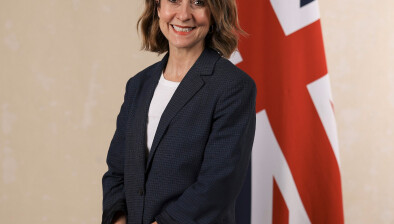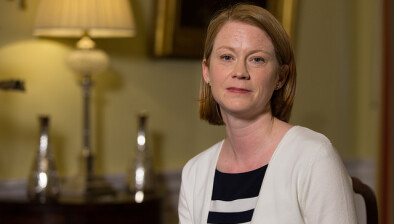Ministers promise ‘biggest year yet’ for new social security system

Ben Macpherson
The introduction of Adult Disability Payment and extension of Scottish Child Payment to children under 16 will see a major increase in the number of people eligible to receive Sottish benefits in 2022.
The Scottish Child Payment will increase to £20 from April, giving increased support to 111,000 children under the age of six. Its extension to children under 16 by the end of 2022, subject to the DWP making data available, will see the number of eligible children more than double to 400,000.
Adult Disability Payment, the twelfth benefit and most complex to be introduced so far, will replace the UK Government’s Personal Independence Payment. It will be phased in from March, with nationwide rollout at the end of August.
To support this, Social Security Scotland is in the process of recruiting up to 2,000 people by autumn 2022 with the first new recruits set to start early in the New Year - the biggest expansion since its formation in 2018, creating jobs and a boost to local economies.
Ben Macpherson, minister for social security, said: “2022 will be our biggest year yet in building a new social security system for Scotland with the powers we have.
“The major milestones of introducing Adult Disability Payment and extending Scottish Child Payment will be transformative for many people with a disability or health condition and for families on low incomes.
“By the end of 2022 we aim to have extended the Scottish Child Payment to all those under the age of 16 - subject to the DWP making data available - increasing eligibility to around 400,000 children.”
He added: “From April the doubling of our Scottish Child Payment will significantly help us to reduce child poverty and build a fairer society. The £20 payment per child per week will be four times what was originally asked for by anti-poverty campaigners and we hope to lift 40,000 Scottish children out of poverty in 2023/24.
“Applying for Adult Disability Payment from Social Security Scotland will be different to applying to the DWP, as we will deliver a much improved experience.
“There will be no private sector involvement, we have removed DWP-style assessments and any consultations that are necessary will be person centred and won’t include functional examinations. We’ll start from a position of trust. Also, we are offering a range of ways to make an application, including online, by post, over the phone or face-to-face; and, in contrast to the current DWP system, we’re removing the burden from individuals to provide supporting information - instead the onus will be on Social Security Scotland to collect the information we require. We’ll also fast-track clients who are facing a terminal illness and we will follow the judgement of clinicians instead of being tied to fixed periods of life expectancy.
“As well as the positive impact of paying benefits, Social Security Scotland is also growing as an employer. This rapid development is not only making a difference in our communities but is also creating long-term secure employment across the country, and a £280 million contribution to our wider economy - something we can all welcome.
“Scotland’s social security system is built on the values of dignity, fairness and respect, and these are the principles which will always guide us as we develop this important public service.”
Derek Mitchell, Citizens Advice Scotland chief executive, commented: “Citizens Advice Scotland supported the introduction and then doubling of the Scottish Child Payment because we know the difference it can make to families across the country. We’d encourage everyone eligible for the payment to apply and claim, that’s how our welfare state works – we all pay in and get the support we are entitled to when we need it.
“With the cost of living starting to really bite people can get help and advice from the Citizens Advice network to see what support they are entitled to. We’ve been helping people for over 80 years and unlocked £147 million for people last year.”






